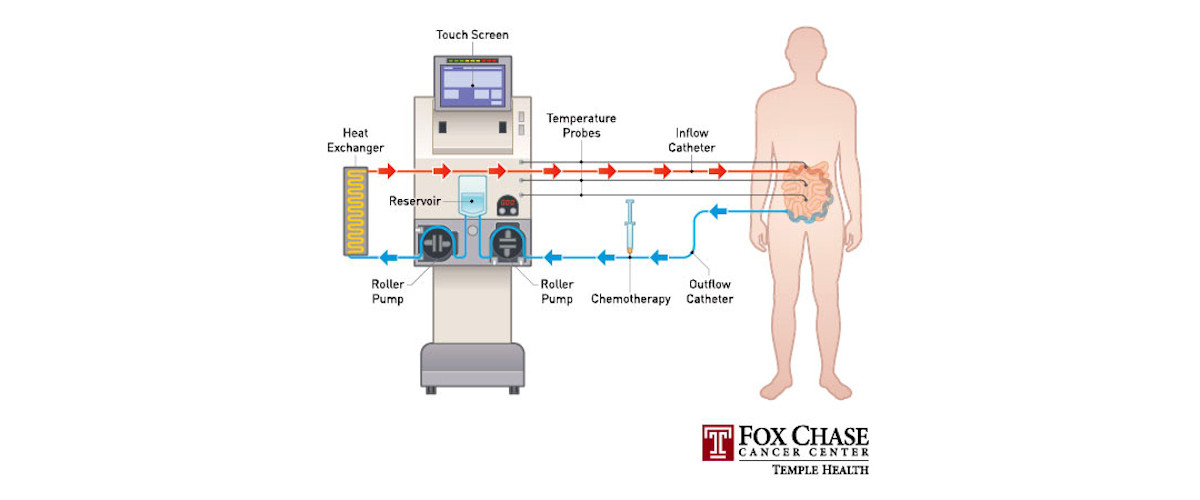More Information
For general information or to ask us a question, please visit our Contact Us page.
In our continued effort to protect out patients and staff against COVID-19, Fox Chase is now offering phone and video appointments for some patients.

Fox Chase Cancer Center is one of only a handful of hospitals in the Philadelphia region offering hyperthermic intraperitoneal chemotherapy (HIPEC) – a novel way of delivering chemotherapy directly to the lining of the abdominal cavity during surgery.
HIPEC is a unique option in lieu of, or in addition to, traditional chemotherapy. This is particularly true in patients with advanced cancers that have spread to the peritoneum (lining of the abdominal cavity) and those who have been told they no longer have effective treatment options.
HIPEC is also referred to as intraperitoneal hyperthermic chemoperfusion (IPHC), intra-abdominal hyperthermic chemoperfusion, or intraoperative chemohyperthemic peritoneal perfusion (CHPP).
Following the surgical removal of visible tumors in the abdomen (debulking), the abdominal cavity is bathed with a heated chemotherapy solution for up to ninety minutes in the operating room. The chemotherapy is heated to make the tumor more sensitive to the drug. The goal of this approach is to destroy any remaining microscopic cancer cells and prevent recurrence.
Unlike chemotherapy that is delivered through the blood stream to the whole body, HIPEC is largely isolated in the abdominal cavity. This allows for:
HIPEC is an option for certain advanced cancers – usually appendiceal cancer and peritoneal mesothelioma – that have spread throughout the abdomen or to the peritoneal lining.
The procedure may be used with other cancers, including metastatic colorectal cancer and gastric cancer. However, clinical trials are currently being conducted to evaluate its effectiveness in these situations.
Fox Chase Cancer Center currently has one of the few HIPEC programs in the region. If you are eligible for HIPEC, our experienced team will lead you through every step of the process. The treatment of these cancers is complex, but using a multidisciplinary approach to cancer care, we are able to deliver the best possible care that is tailored to the individual.
For general information or to ask us a question, please visit our Contact Us page.
In our continued effort to protect out patients and staff against COVID-19, Fox Chase is now offering phone and video appointments for some patients.